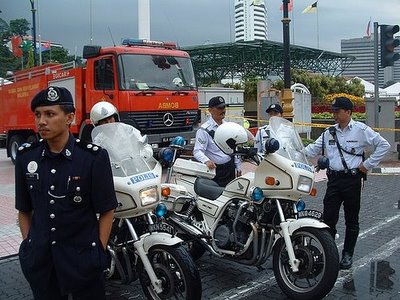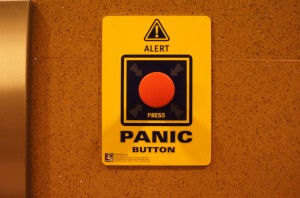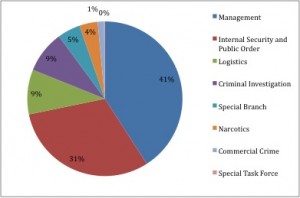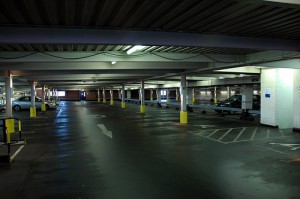Recent national debate about whether the recent spike in crimes was mere ‘perception’ has captured headlines and fueled a blame game. Figures and statistics are well and good, but the question that most people have on their mind is: why don’t we feel safe?
The folks at REFSA think that we have enough policemen to get the job done. In their focus paper, REFSA points out that the 106,000-strong police force presents a healthy ratio of 1 policeman to 270 Malaysians. This is not far from Interpol’s recommended ratio of 1:250.
We ask the Royal Malaysian Police five questions about crime, and they are doing about it.
1. Where are our cops when we need them?
As of January 2011, for every uniformed police handling crime, there are six in non-crime sectors. This means six times as many policemen are tasked with non-crime related jobs, than those who are fighting crime. No wonder we don’t feel safe!
Distribution of uniformed police personnel in 2011. Source: Home Ministry
It is a sobering fact that the criminal investigation department comprises barely 9% of the police force. In stark contrast, 41% of uniformed police perform management functions, while 31% are tasked with internal security and public order.
2. Why do we have more policemen spying than fighting crime?
PKR has revealed Budget figures showing that in 2010, the police produced 733,237 spy reports and security checks, but only 211,645 criminal investigation papers. So Special Branch produced more than three times as many reports as the Criminal Investigation Department did.
MP for Bukit Bendera, Liew Chin Tong says that the BN government is obsessed with regime security. The government’s priorities are reflected in the police force’s priorities: surveillance of political foes and “chasing shadows”.
 3. If the police are busy spying for the government, who will keep us safe?
3. If the police are busy spying for the government, who will keep us safe?
More and more Malaysians are taking the law into their own hands. There are 1,151 gated and guarded communities in Peninsular Malaysia as of March this year. Private security comes with a price, with neighborhoods charging RM50 – RM100 per household per month for security services.
This works out to between RM11.5 million and RM57.5 million out-of-pocket expenses that many middle-class residents fork out to keep themselves safer. Many who cannot afford to pay for security rely on the police to prioritise crime-busting with their annual allocation of RM6.3 billion in 2012.
4. Should we put more policemen on the street?
Consider the core function of the police, as outlined in the Tun Dzaiddin-led Royal Commission to Enhance the Operation and Management of the Royal Malaysia Police (RCI):
(a) Maintenance of law and order;
(b) Preservation of peace and security of Malaysia;
(c) Prevention and detection of crime;
(d) Apprehension and investigation of offenders; and
(e) Collection of security intelligence.
This is besides the management, human resource and logistics (known as non-core, or support functions) that take up 20% of the police force.
 The Dzaiddin Report estimated that about 20,000 uniformed personnel (22%) could be freed to go back to active core policing work. More policemen on the streets means less worries about street crime, snatch theft and break ins. And perhaps, less people will feel the need to live in guarded enclaves.
The Dzaiddin Report estimated that about 20,000 uniformed personnel (22%) could be freed to go back to active core policing work. More policemen on the streets means less worries about street crime, snatch theft and break ins. And perhaps, less people will feel the need to live in guarded enclaves.
So far, 7,402 officers have been identified for redeployment, according to the Home Minister in a Parliamentary reply in 2011. This falls far short of the target recommended by the Dzaiddin Report.
Calls for RELA officers or the armed forces to patrol our shopping malls have been met with apprehension by the public. We need to be able to rely on the boys in blue to fight crime, not resort to panic measures or martial law. Not to mention, deploying troops on the street during peacetime raises questions of legitimacy.
5. Have the recommendations in the Dzaiddin Royal Commission been carried out?
The Minister also stated that 38 of the 125 recommendations in the Dzaiddin Report have been carried out. The 363-page document contains detailed recommendations and findings which the RCI reached after inquiries, surveys and feedback from the public.
It outlined nine challenges confronting the police force, including: corruption among police, unsatisfactory housing and work premises, abuse of human rights in implementing laws, and the rapid changes in the political and social environment governing policing.
The Dzaiddin report detailed recommendations for preventing custodial deaths, including a code of practice relating to arrest of detainees, 24-hour video surveillance for police stations, and video recording for interviews.
It also suggested expediting disciplinary proceedings involving police personnel, encouraging whistle-blower protection, and establishing a bureau for complaints against police.
A safer tomorrow
Public policy researcher Tricia Yeoh has suggested that local and community-level players could be given liberty to ensure safety and security in areas which police are unable to cover due to insufficient personnel.
She noted that the Petaling Jaya City Council’s attempt to form its own auxiliary police force was rejected by the federal government.
Decentralising the management of crime, redeploying more police to active duty, and implementing the recommendations of the RCI report are areas that the BN government must examine.
 Pakatan Rakyat has pledged to redeploy more resources to the police for criminal investigation to cut the crime rate. DAP has also called for the government to revisit the recommendations in the Dzaiddin report, particularly setting up an Independent Police Complaints and Misconduct Commission (IPCMC).
Pakatan Rakyat has pledged to redeploy more resources to the police for criminal investigation to cut the crime rate. DAP has also called for the government to revisit the recommendations in the Dzaiddin report, particularly setting up an Independent Police Complaints and Misconduct Commission (IPCMC).
The Dzaiddin report set a lofty aim: create an efficient, incorruptible, professional and world-class police service focusing on the three core functions of keeping crime low, eradicate corruption and uphold human rights. Those are the ideals to which we hold Bukit Aman to, and working towards these aims will certainly make our society safer instead of harping on the perception-statistics debate. -The Rocket









